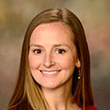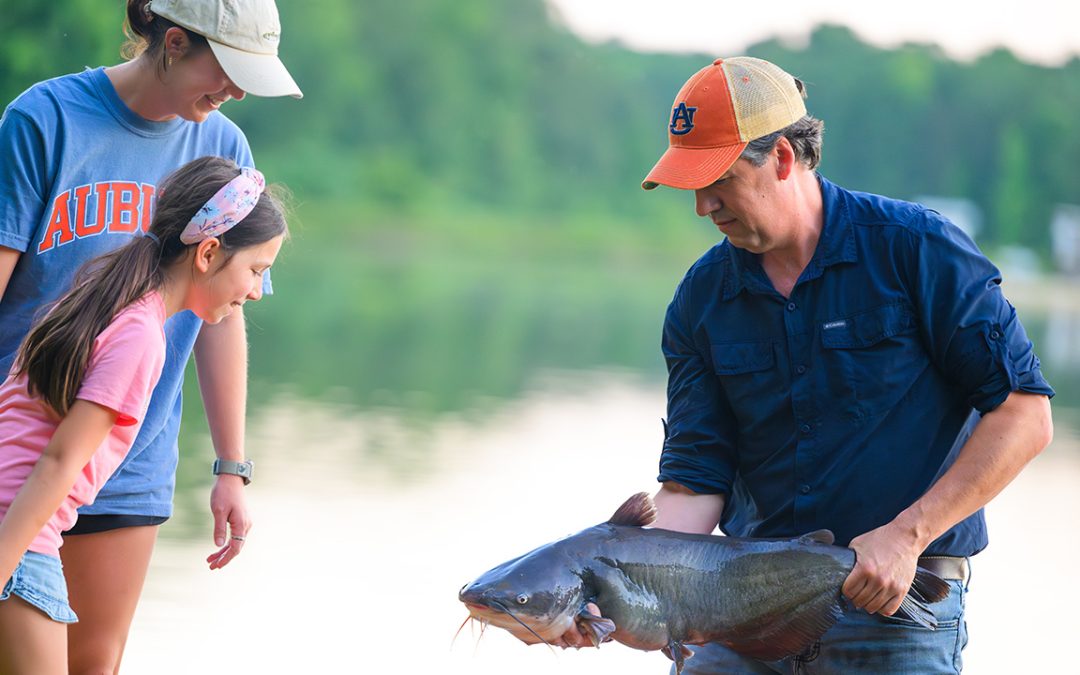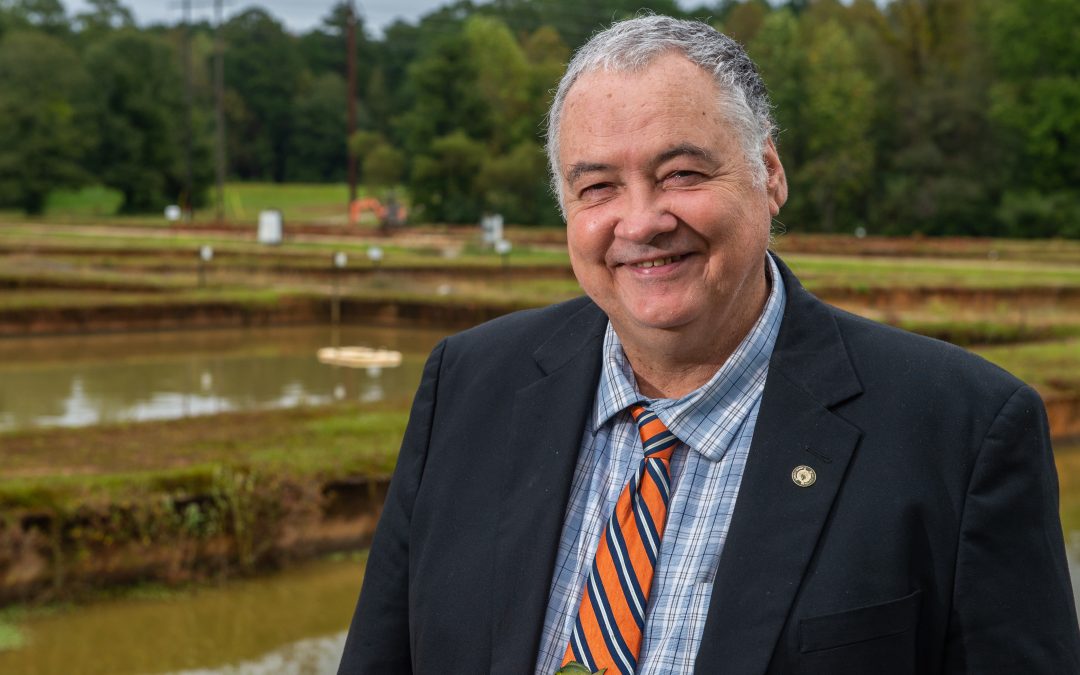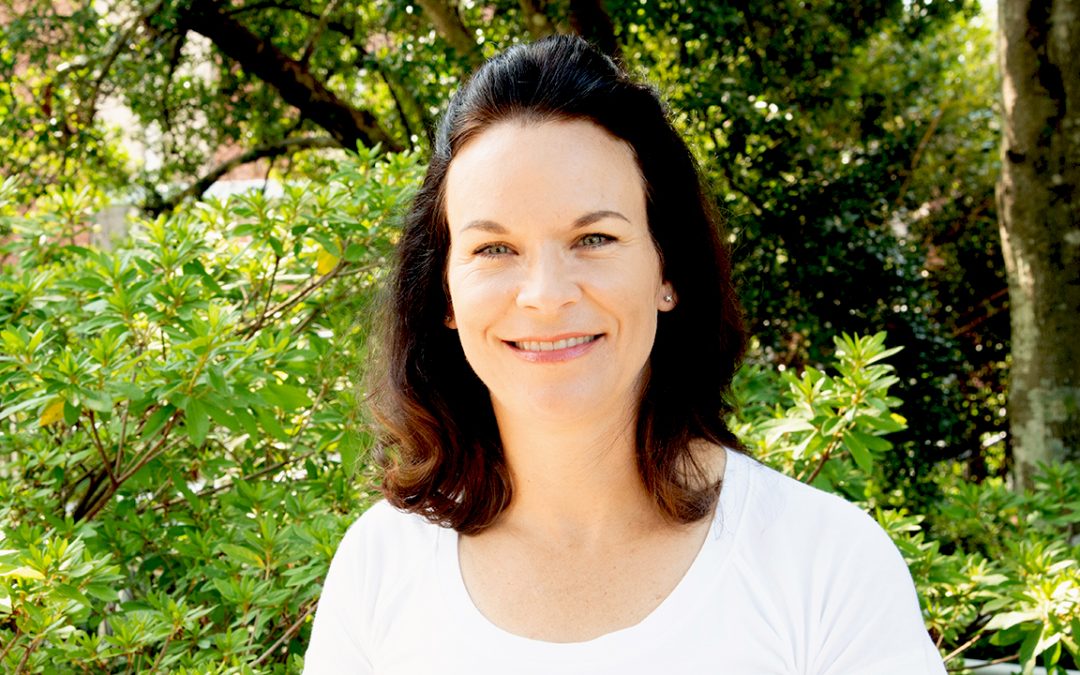by MARY CATHERINE GASTON

Noe Noe Lwin, a graduate student in the School of Fisheries, Aquaculture and Aquatic Sciences, has been awarded the prestigious Faculty for the Future Fellowship.
When she was asked to join some of the world’s best-known senior scientists as a presenter at the 2012 gathering of the World Aquaculture Society, Noe Noe Lwin stole the show. Then just 31 years old, the teacher-turned-entrepreneur captivated the crowd with her story of her challenges and triumphs as a young female immigrant starting an aquaculture supply company, three seafood farms and a seafood trading business in Thailand—all with no prior experience in the industry and while speaking a second language.
Widely known in aquaculture circles around the globe, Lwin is now a student in Auburn’s School of Fisheries, Aquaculture and Aquatic Sciences, where she hopes to fulfill her father’s last wish for her—that she add a Ph.D. to her already-outstanding resume.
But it is not just her father’s dying wish that motivates Lwin in her studies and research. As a small business owner in an industry that is vital to her home country of Myanmar (formerly Burma), and neighboring Thailand, Lwin understands the need for innovation on crab farms like the three she owns and operates.
“I want to understand the science behind my daily farming activities,” she says. “Aquaculture requires expert management and precise activity. Being a small-scale farmer and business owner, I feel that innovation is the only way for me to keep going, since I do not have much investment money.”
And innovation is at the heart of her doctoral research. Studying under Bill Daniels and Allen Davis, Lwin aims to develop a practical feed and diet for farm-raised mangrove crabs, a popular and important food source throughout much of the world. Specifically, she is examining the physiology of the digestive system of the crabs, hoping to identify key enzymes and nutritional pathways.
Once she’s accomplished this, she will test the digestibility of several ingredients typically used in aquaculture diets, then test to see whether the various formulations she’s created meet the animals’ dietary needs. Eventually, she plans to manufacture the feed and conduct trials to determine which formulas result in the fastest growth and highest survival rates.
While all of this sounds like the work of someone who has dreamed of being an aquaculture researcher for years, Lwin actually stumbled into the role while in Bangkok, doing what she had always planned to do—teaching science to children. She had learned of the need for an aquaculture supply business in her home city of Yangon, Myanmar, while completing her master’s degree, and together with an uncle and his prawn-farming boss, Lwin set up her first business. While she was in Bangkok, she would purchase the items the men suggested, then ship them home to Yangon, near the Thai border, for sale to the seafood farmers there.
In her presentation to the World Aquaculture Society and in conversations with colleagues today, Lwin describes the obstacles she has overcome as a foreigner, a female and a novice trying to break into the aquaculture industry. She has had to learn to manage employees, often acting as interpreter at medical clinics for her Burmese employees living and working in Thailand. Managing cash flow and keeping accurate records are daily challenges as well.
As a small-scale producer, Lwin does not have the capital to qualify for bank loans and so must balance income and payments daily. In an industry where most deals are made with a handshake and very few written records are kept, Lwin says bookkeeping is an ongoing effort that keeps her up into the night, making careful notes of the day’s transactions.
She has faced discrimination rooted in racial and ethnic prejudice but has made every effort to prove herself an honest and positive person, efforts she says have paid off in the seven years since she began her first farm.
During those seven years, she also witnessed the impact of Auburn aquaculture researchers’ work in Southeast Asia and came to know it as the world’s leading fisheries and aquaculture program. When given the challenge by her father to pursue a Ph.D., she knew immediately that Auburn was the school she would attend.
“It has been my longtime dream to come and study in Auburn,” she says, though she did not know how she would afford to do so.
Shortly after being admitted to Auburn’s program in 2014, she learned of a fellowship program that could be the answer to her funding challenges. Henry Fadamiro, assistant dean and director of the College of Agriculture’s Office of Global Programs, brought the opportunity to the attention of Daniels and encouraged Lwin and her major professors to pursue it.
In March, Lwin received word that she had been selected for the prestigious Faculty for the Future Fellowship. Sponsored by the Schlumberger Foundation, the program provides funding for women from developing countries to pursue doctoral degrees in the top programs at U.S. universities. The program requires that upon completing her degree, she return to her home country to apply what she has learned, something she planned to do anyway.
“Since her arrival, I have been amazed by [Noe Noe’s] enthusiasm and dedication to her goal to obtain her Ph.D. and return to Myanmar to lead development of the aquaculture and fisheries industries,” says Daniels. “She continues to emphasize the need for the Ph.D. to enter the university system in Myanmar and have a greater impact on the country’s development. She truly desires to move her country forward and be a mentor to others, particularly the women of Myanmar.”




